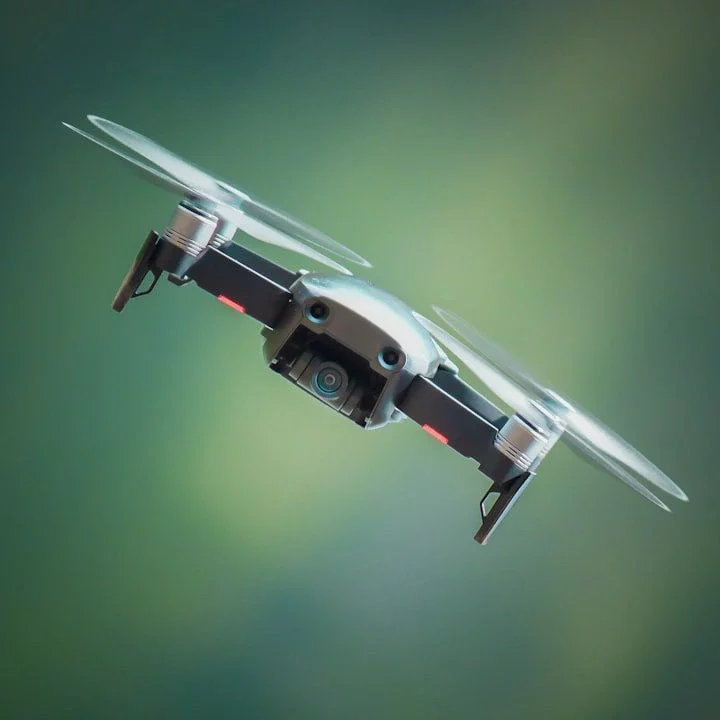5 Countries that have drone weapons

Drone warfare has become a defining feature of 21st-century armed conflict. These unmanned aerial vehicles (UAVs), also known as drones, offer advantages like long-range precision strikes and minimal risk to pilots. However, their use raises significant ethical and legal concerns, particularly regarding civilian casualties and the lack of transparency surrounding drone programs.
Here’s a closer look at five countries with prominent drone weapon programs:
1. United States:
Pioneer in Drone Warfare: The US is the undisputed leader in drone development and deployment. It has used drones extensively in Afghanistan, Pakistan, Yemen, Somalia, and Libya.
Focus on Counterterrorism: US drone strikes primarily target suspected terrorists and militants. However, civilian casualties have occurred, sparking international criticism and domestic debate.
Secrecy and Scrutiny: The US drone program operates with a high degree of secrecy, making it difficult to assess its effectiveness and hold perpetrators accountable for civilian casualties.
2. Israel:
Strong Military and Technological Prowess: Israel boasts a sophisticated drone industry and has employed drones extensively in conflicts with Palestine and other regional adversaries.
Emphasis on Targeted Assassinations: Israel utilizes drones for targeted assassinations of suspected militants, raising concerns about due process and extrajudicial killings.
Limited Transparency: Similar to the US, Israel maintains a secretive drone program, hindering independent oversight and accountability.
3. Iran:
Rapidly Developing Drone Program: Iran has made significant strides in developing its own drone technology, posing a growing threat to regional security.
Focus on Defense and Regional Influence: Iran views drones as a vital tool for defense against external threats and projecting power in the Middle East.
Uncertainties and Concerns: Limited information exists on the extent and capabilities of Iran’s drone program, raising concerns about potential proliferation and use against civilian targets.
4. Turkey:
Emerging Drone Power: Turkey has invested heavily in drone technology in recent years, achieving notable successes in conflicts with Kurdish groups and in Syria.
Emphasis on Domestic Production: Turkey prioritizes domestic drone production, aiming to reduce dependence on foreign military technology.
Growing Influence: Turkey’s drone exports are on the rise, raising concerns about the proliferation of these weapons to potentially unstable regions.
5. China:
Ambitious Military Modernization: China is rapidly developing its drone capabilities as part of its broader military modernization program.
Limited Operational Use: While China possesses advanced drone technology, its experience in using drones for combat operations remains limited.
Potential for Escalation: China’s growing drone program adds another layer of complexity to regional security dynamics, particularly in the South China Sea.
Beyond the Big Five:
It’s important to note that drone programs are not limited to these five countries. Several other nations, including Russia, India, Pakistan, and the United Arab Emirates, are also developing or deploying drone technology. This trend raises concerns about the potential for wider proliferation and the normalization of drone warfare.
The Ethical and Legal Landscape:
The use of drone strikes raises a host of ethical and legal questions. Civilian casualties, the targeting of individuals without due process, and the psychological impact of drone warfare on both operators and targeted populations are all critical issues that demand international attention.
The Future of Drone Warfare:
Drone technology is constantly evolving, leading to increased capabilities for both surveillance and strikes. As drone programs continue to proliferate, it is crucial to establish robust international frameworks to regulate their use and minimize the risks associated with drone warfare. This includes promoting transparency, ensuring accountability for civilian casualties, and upholding international humanitarian law.
In conclusion, drone weapons have become a significant force in modern warfare, with both the US and Israel leading the way. Other countries like Iran, Turkey, and China are rapidly developing their own programs. While drones offer tactical advantages, their use raises serious ethical and legal concerns. Moving forward, international cooperation is necessary to ensure responsible and transparent drone use that minimizes civilian harm.





